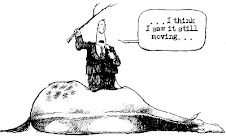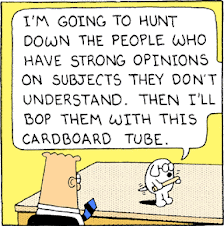Tuesday, January 29, 2008
The Catholic Church
Pedophilia and The Priesthood
Monday, January 28, 2008
Wine Travels ...
Wines...
Just As Bill Did , So Does Ted...
Thursday, January 24, 2008
Is there no where to go for peace and quiet now?
Tuesday, January 22, 2008
The Four 'R's of Education
Monday, January 21, 2008
Leonard Cohen - "I'm Your Man"
Thursday, January 17, 2008
A BIG Gamble For Rudy...
Every Town Should Have One... or Five.
By Peter J. Howe, Globe Staff | January 17, 2008
Sometime next year, Hull could become the first community in Massachusetts to get all its electricity from wind power.
After years of study, Hull officials are now seeking approval of state environmental regulators to install four wind turbines, each about 430 feet high, in ocean waters about a mile and a half east of Nantasket Beach.
Ian A. Bowles, the state secretary of energy and environmental affairs and a wind-power advocate, could approve the project as soon as Feb. 6 or order further environmental studies.
A popular 19th century summer resort that today has more than 11,000 year-round residents, Hull already gets about 12 percent of its electricity from two land-based wind turbines. One is on Pemberton Point near the high school. A second is at the site of a former town landfill near the Hingham line. The four offshore wind turbines would produce close to 15 megawatts of electricity, enough to cover the balance of the town's demand.
The offshore wind farm, in an area called Harding Ledge, is even closer to the town than any of the 140 similarly-sized turbines planned for the Cape Wind power project in Nantucket Sound. But while Cape Wind has generated fierce opposition, as well as support, the Hull project is facing comparatively little local opposition.
Town Manager Philip Lemnios said one key reason is that Hull's 6,100 electric customers get their power from the town-owned Hull Municipal Light Plant, which means that the windmills will be producing electricity they are paying for directly in their homes and businesses. Also, Hull residents have lived with the Pemberton Point turbine for eight years.
"It's our own electricity," Lemnios said. "We work to make sure that kids know when they see a streetlight on that it's being powered by the wind turbine."
The slowly-spinning turbine on Pemberton Point is perched in a dramatic, photogenic locale against the backdrop of Boston Harbor and its islands. It "is a beautiful piece of kinetic sculpture" that even draws tourists to town, Lemnios said.
Some local lobstermen fear that the construction of the four turbines could disrupt what is a fertile and lucrative lobstering grounds from March to December.
"I don't want people to think we're against wind power - we're not - but it's just a question of where and when you install them," said Bill Adler, executive director of the Massachusetts Lobstermen's Association.
Adler said lobstermen were anxious about natural-gas pipelines installed on the harbor floor but energy companies addressed their concerns and make "mitigation payments" to compensate them for lost lobstering time and harvests.
"We just want to get together and talk" with Hull officials about living with the project, Adler said. It would occupy about 12,000 square feet of ocean floor during construction, less than a third of an acre, and 907 square feet permanently for the foundations of the turbines. Lemnios said the question of Hull paying lobstermen to defuse opposition has not been raised or discussed.
Aside from the Hull project and Cape Wind, the only other offshore wind farm now proposed in Massachusetts is Boston construction mogul Jay Cashman's plan for 120 windmills off Dartmouth and Mattapoisett in Buzzards Bay.
In the North Shore town of Rowley, which has a town-owned electric utility, the town's Municipal Lighting Plant director. Linda Soucy, said, "We're in the very early stages of looking at" where the town might be able to install wind turbines.
In terms of steady wind, "we're not in as good a position as they are in Hull," Soucy said, and it may be impossible to get regulatory approval to run electric cables through the Plum Island wildlife refuge.
The only town coming close to Hull's potential use of wind-powered electricity is Princeton, in Central Massachusetts. Its town-owned electric utility is currently replacing eight small 1980s wind turbines on Mount Wachusett with two big units that within a year will produce about 40 percent of Princeton's power.
Peter J. Howe can be reached at howe@globe.com.
Wednesday, January 16, 2008
Steroids in Baseball.... Do we really want to stop it?
Foul BallHOW THE JUSTICE DEPARTMENT MISPLAYED THE STEROIDS INVESTIGATION.
By Frank Bowman [from Slate Magazine On-Line]Posted Monday, Jan. 14, 2008, at 1:54 PM ET
Tomorrow, former Sen. George Mitchell will testify before a House committee about his investigation into performance-enhancing drugs in baseball. When they're done listening, members of Congress should ask some hard questions about the relationship between Mitchell's report and the Justice Department criminal investigation that gave him most of his information.
Make no mistake. As a former prosecutor, I am delighted that the DoJ unleashed the bloodhounds of the criminal justice system on drug cheats in baseball. Taken without a prescription, anabolic steroids and human growth hormone are every bit as illegal as cocaine, heroin, or marijuana. Simple equity suggests that the federal government should be just as ready to pursue jillionaire bat-wielding juicers and their suppliers as penniless crackheads and their dealers. More importantly, allowing obviously chemically enhanced cheaters to stand rich, idolized, and unchallenged at the pinnacle of professional athletics increases the likelihood that the legions of young people who long to be sports heroes will emulate their idols and wreck their bodies in the process.
E - On one hand, we prosecute the steroid dealers in local gyms. We strip Olympic athletes of their titles and medals. Yet with the pros we look the other way, or possibly [Heaven forbid!] we put put an asterisk next to their name.
That said, the Justice Department has mishandled the baseball steroid investigation in two important ways. First, the DoJ is prosecuting, or at least focusing on, the wrong people. The primary targets should be players, not suppliers. At the same time, the U.S. Department of Justice had no business feeding Mitchell, and through him the public, damaging information about players it lacks the evidence or the will to prosecute.
E - If they have solid evidence, why aren't they prosecuting? Would you or I get the same treatment?
Consider first who is being prosecuted. So far, the government has charged or made plea deals for testimony with those who supplied drugs to players, leaving the players themselves untouched unless, as with Barry Bonds, the player committed apparent perjury. Defenders of this approach, including Mitchell, justify it by claiming it is analogous to customary federal practice in cases involving recreational drugs of going after suppliers, not users. But the analogy is flawed.
Federal prosecutors customarily prosecute dealers rather than users primarily because dealers are considered more culpable. Dealers are the rich, bad-guy beneficiaries of others' weaknesses, while users are destitute victims or inconsequential saps. Dealers affect many people. Users affect only themselves.
E - Excellent point, I believe.
The hierarchy of the performance-enhancing drug market for professional athletes is exactly the reverse. The balance of power, money, and culpability lies with the players in their relationships with guys like Roger Clemens' trainer Brian McNamee or former Mets clubhouse attendant Kirk Radomski. McNamee's and Radomski's continued employment in and around the major leagues depended on the favor of players, particularly stars. The nobody suppliers made a few thousand in pin money for supplying the juice. But the real financial gainers were the players: Drugs allowed them to cheat their way into the majors or to enhance and prolong careers worth millions of dollars. If relative culpability is to determine who is prosecuted and who is allowed to go free, it's the players who should be indicted.
The other reason federal prosecutors ordinarily go after dealers, not users, is to have a greater effect on drug markets. But if one really wanted to stop the use of steroids in baseball, which is likely to be more effective—cooperation deals with a few locker room enablers, or the spectacle of big leaguers in prison stripes rather than pinstripes?
It's been suggested that the DoJ didn't prosecute players because the evidence against them was weak. But if the Mitchell report is accurate, the government has solid possession cases against a number of players based on precisely the sort of evidence—dealer testimony supported by shipment and payment records—upon which garden-variety drug cases are made every day. And given the nature of the distribution networks involved here, a plausible case could be made for felony conspiracy charges against some players.
E - Here is a weak point in this article, however. Can we convict a player if the only testimony that is to be used to convict him is from a drug supplier?
Even more troubling than the absence of player indictments is the degree to which prosecutors skirted the boundaries of traditionally permissible conduct in their treatment of the players they did not charge, and of their own cooperating witnesses. Police and prosecutors have unique powers to investigate and prosecute the small sliver of particularly undesirable behavior the law defines as "crime." Use of the government's criminal powers for other purposes—like "cleaning up" baseball—is always pregnant with the potential for misuse. A mere allegation of criminal wrongdoing coming from government sources can wreck a life or a career. ...
E - ... and maybe that is where the government feels it is getting its punishment. "We can't convict them, but we can ruin their reputation..." And if anyone doesn't think the government does that, they need to grow up.
... If formal charges are filed, the defendant will at least have his day in court to admit or attempt to disprove the government's case. But if the allegation comes in a report issued by the private sector, but engineered by the government, the reputational damage is done, and the defendant has no forum in which to contest it.
E - "Tried in the Court of Public Opinion"
For precisely this reason, by law, federal grand jury proceedings are secret to protect the reputations of those who are investigated but never prosecuted. Historically, Department of Justice policy has been even more sensitive to these interests. In public filings and proceedings, the DoJ's Principles of Federal Prosecution require prosecutors to "remain sensitive to the privacy and reputation interests of uncharged third-parties," which "means that, in the absence of some significant justification, it is not appropriate to identify … or cause a defendant to identify, a third-party wrongdoer unless that party has been officially charged with the misconduct at issue." (The italics are mine.)
Technically, the deals requiring McNamee and Radomski to cooperate with Mitchell probably don't violate grand jury secrecy laws, because those laws bind prosecutors, agents, and grand jurors, but not witnesses like McNamee and Radomski. And technically, those deals might not have violated DoJ policy on uncharged third parties, inasmuch as Clemens and other players weren't actually named in official filings or in a federal courtroom. But using plea bargaining leverage to require witnesses to divulge to Mitchell the names of people the Justice Department never intended to prosecute surely violated the purposes of both grand jury secrecy law and DoJ policy.
E - But did they "never intend" to? Hopefully they thought they would if they could gather enough proof. But as we saw with OJ, the wealthy can present a long, large, and costly case for the government and the government had better cross its T's and dot its I's before presenting it.
With the authority granted prosecutors to make life-altering accusations goes the obligation to prove them. Here, the U.S. Attorney's Office made no individual assessment of the strength of the allegations by Radomski and McNamee against dozens of players. It never winnowed the provable cases from the mere rumors or unprovable assertions. Instead, prosecutors forced flipped witnesses to reveal everything they knew or had heard to Mitchell and walked away from the responsibility to prove any of it.
In addition, forcing cooperators like McNamee and Radomski to talk to a private party set them up for defamation suits. It's fine for a prosecutor to require a cooperator to divulge everything he knows, provable or not, in the privacy of the debriefing room, because, in general, only the provable parts will become public, and then only in official proceedings. But McNamee and Radomski were given a Hobson's choice—refuse to tell Mitchell everything they knew and go to jail, or tell him everything, including the very possibly true but unprovable bits, and, once Mitchell went public, get crushed by rich guys' lawyers. Not an outcome likely to encourage others to come forward.
E - In my opinion, since they were compelled to testify by a DoJ investigation, they should be immune from lawsuits base on what they said.
Cleaning up baseball is a laudable objective. But so far the DoJ has failed to explain why normal rules and policies governing criminal investigations should be ignored to achieve it. Congress should insist on an explanation.
__
E - So are steroids drugs or not? If the famous ballplayers in question were wrestlers, or bodybuilders, would they be granted the same immunity from full prosecution? How about gambling? Is that worse than steroids? I wouldn't think so, yet I think we all knew of ballplayers were illegally gambling and cheating to affect the outcomes of games, there would be investigations, fines, players thrown out of baseball and ineligible for the Hall Of Fame, and probably prison terms, etc. I am not a fan of Pete Rose but I am a fan of Pete Rose's performance on the field. That being said, I do not think he should ever go into the Hall of Fame. And I do think his being excluded will stop other stars from ruining their legacy by gambling on their sport. Pete barred for possibly changing the outcome(s) of games, correct? Meanwhile, Bonds and allegedly Clemens, and others, have done the same thing. They cheated and changed the outcomes of games. More than prison time, if you want to deter athletes from using steroids and cheating then their records should be removed from the books and they should be barred from the Hall of Fame.
Tuesday, January 15, 2008
CD Sales Are Down
Friday, January 11, 2008
I'm jusy not sure what to say about this one...
Thursday, January 10, 2008
It was good while it lasted...
Well, this might completely derail the Obama campaign... Think Hillary paid Kerry to do this?
John Kerry To Endorse Obama





